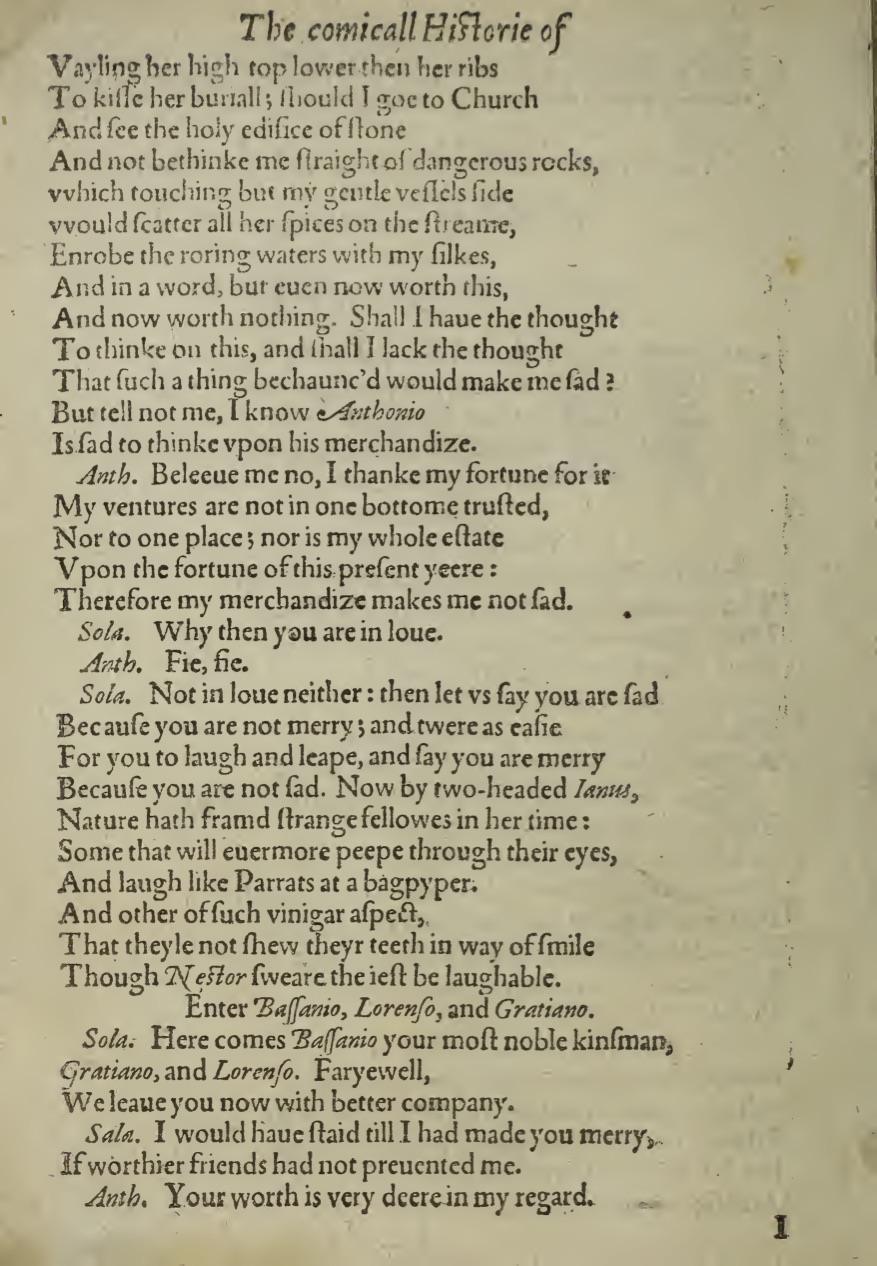Vayling her high top lower then her ribs
To kisse her buriall; should I goe to Church
And see the holy edifice of stone
And not bethinke me straight of dangerous rocks,
which touching but mygentle vessels side
would scatter all her spices on the streame,
Enrobe the roring waters with my silkes,
And in a word, but euen now worth this,
And now worth nothing. Shall I haue thought
To thinke on this, and shall I lack the thought
That such a hiring bechaunc'd would make me sad?
But tell not me, I know Anthonoio
Is sad to thinke vpon his merchandize.
Anth. Beleeue me no, I thanke my fortune for it
My ventures are not in one bottome trusted,
Nor to one place; nor in my whole estate
Vpon the fortune of this present yeere:
Therefore my merchandize makes me not sad
Sola. Why then you are in loue
Anth. Fie, fie.
Sola. Not in loue neither: then let vs say you are sad
Because you are not merry; and twere as easie
For you to laugh and leape, and say you are merry
Because you are not sad.
Now by two-headed Ianus,
Nature hath framd strange fellowes in her time:
Some that will euermore peepe through their eyes,
And laugh like Parrats at a bagpyper.
And other of such vinegar aspect,
That theyle not shew theyr teeth in way of smile
Though Nestor sweare the iest be laughable.
Enter Bassanio, Lorenso, and Gratiano
Sola. Here comes Bassanio your most noble kinsman.
Gratiano, and Lorenso. Faryewell
We leaue you now with better company.
Sala. I would haue staid till I had made you merry,
If worthier friends had not preuented me.
Anth. Your worth is very deere in my regard.
Key:
Words of love/emotion
Words of value/money/goods
Words of feminization
